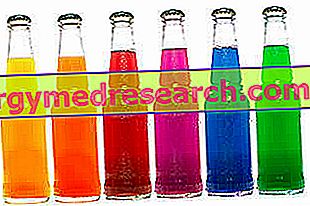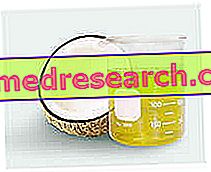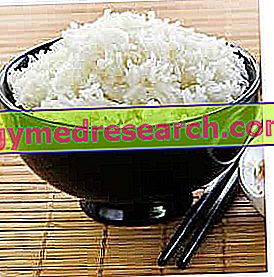The alcopops are drinks belonging to the category of accessory or complementary liquids not classifiable within the 7 fundamental food groups ; the alcopops are therefore alcoholic beverages, therefore they contain ethyl alcohol (albeit in fairly small quantities).

Generality
The term alcopops (in the singular ALCOPOP) derives from the union of nouns: ALCOHOL + POP (indicating a modern and youthful vision of alcoholic beverages). The alcopops are born as SUBSTITUTE drinks with traditional alcoholic beverages, considered "too heavy" for younger consumers who, preferring them to wine, beer and spirits, would reduce the risks of developing a form of abuse: alcoholism or binge drinking.
There are other terminologies and acronyms that more accurately describe the alcopops and their nature; these nomenclatures (also attributable to the actual classification of the alcopops) are mainly used by the alcoholic beverage industry since the term ALCOPOP is not yet foreseen and framed by the food and / or commodity legislation.
I'm alcopops:
- Flavored alcoholic beverage - FAB
- Flavored malt beverage - FMB
- Pre-packaged spirit or premium packaged spirits - PPS
- Ready To Drink or Aus & NZ - RTD
Classification
The alcopops can be classified into three categories:
- Alcopops obtained from malt fermentation and subsequent addition of fruit juices and / or natural flavors
- Alcopops containing wine and subsequently added with fruit juices and / or natural flavors (cold wines)
- Alcopops based on distilled alcohol and fruit juices and / or natural flavors.
How to recognize them?
The alcopops are effectively mixed with soft drinks thanks to an extremely similar "packaging"; the colors of the packs and / or the liquid itself are typically modern and gaudy, therefore highly attractive for a young and above all female audience (normally more reluctant to taste alcohol in drinks).
Also the format of the alcopops is quite similar to that of sweet drinks, while the percentage of alcohol is very close to that of beer; in Europe, the alcopops are distributed in 330ml bottles or cans and contain about 4-7% of alcohol compared to the total volume of the drink. The most widespread alcopops in Italy are based on vodka and rum, while in the United States lightened beers - flavored / sweetened (practically unknown in our country) are the most popular; to date, mixed SOLO products (distillate + beverage) seem to be equally widespread, reaching 12.5% of the total volume of alcohol.
Alcopops yes or alcopops no?
From what we have read so far, we could deduce (or we might be led to think) that the alcopops are a fairly effective solution against child alcohol abuse, as they are distinguished by the extremely low alcohol content.
MISTAKEN!
Since ethyl alcohol is a molecule toxic to the organism and tolerable only within certain limits (25-40g / day in the ADULT population), its introduction (albeit minimal) among the consumption habits of young people represents the adolescent antechamber of a potential abuse (binge drinking - alcoholism - alcoholism) in adulthood. Not surprisingly, in many countries the production of alcopops is still heavily taxed by the state, in order to limit its production and excessive distribution; this maneuver (not devoid of economic interests on the part of governments, therefore to be considered quite hypocritical!) was justified as "a preventive attitude towards the unscrupulous and immoral distribution of alcoholic beverages to the youth population ". However, thinking about it ...
Would it not have been sufficient to PROHIBIT the distribution of the alcopops (and with them also that of the beer) in the premises that do NOT possess the specific trade license?
... of course yes ...
and from this behavior I deduce that: both governmental institutions and the giants of alcoholic production, while using different means and targets or catchment areas, pursue entirely similar economic interests.



